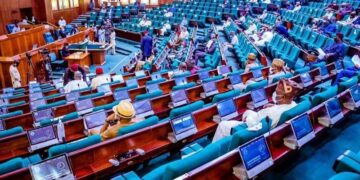The Central Bank of Nigeria (CBN) has announced a remarkable recovery in the nation’s Net Foreign Exchange Reserve (NFER), which surged to $23.11 billion by December 2024 – representing the strongest position since 2021.
This dramatic improvement from $3.99 billion a year earlier signals a significant turnaround in Nigeria’s external sector performance, with gross reserves simultaneously climbing to $40.19 billion from $33.22 billion over the same period.
The NFER calculation, which deducts short-term liabilities including FX swaps and forward contracts from gross reserves, provides a more accurate assessment of immediately available foreign currency buffers.
This robust recovery stems from the CBN’s strategic interventions to clear outstanding FX obligations, restore market confidence, and diversify foreign exchange earnings beyond traditional oil revenues. Governor Olayemi Cardoso emphasised that “these outcomes reflect deliberate policy choices rather than fortuitous circumstances,” highlighting the institution’s focus on structural reforms to ensure sustainable economic stability.
Notably, the reserves expansion occurred alongside a conscious reduction in short-term liabilities, improving both the quantity and quality of Nigeria’s external buffers. The CBN attributes this dual achievement to enhanced transparency in FX operations, disciplined fiscal management, and improved investor sentiment following recent market liberalisation measures.
While acknowledging temporary pressures from foreign debt servicing in early 2025, monetary authorities remain optimistic about continued reserve accretion through increased oil output and non-oil export growth.
Looking ahead, the CBN has committed to maintaining prudent reserve management practices while pursuing policies that support exchange rate stability and attract foreign investment. This strengthened reserve position provides crucial protection against global economic shocks and positions Nigeria for improved creditworthiness in international markets.
The sustained recovery also suggests growing effectiveness of the bank’s strategy to transition from direct market interventions to a more market-driven foreign exchange system, potentially heralding a new phase of macroeconomic stability for Africa’s largest economy.








































Discussion about this post